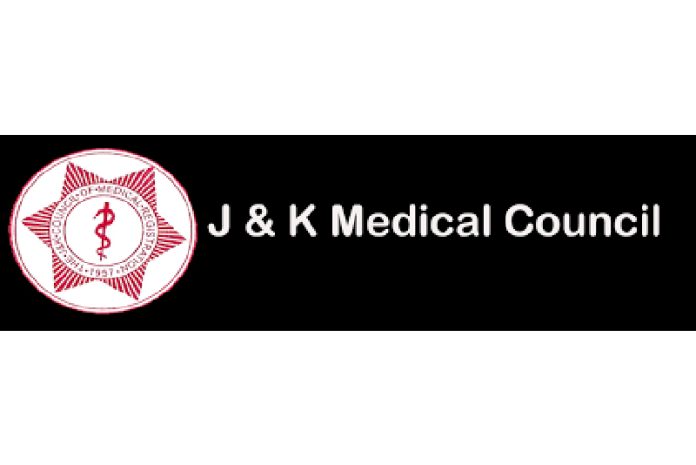Doctors to use QR codes for credential verification
Irfan Tramboo
Srinagar, Jan 3: To prevent quackery and eliminate unauthorized practices by self-styled practitioners, the J&K Medical Council (JKMC) has directed doctors to include all their details on prescriptions, OPD records, and other patient documents.
Doctors are also now required to use QR codes to enable patients to verify their credentials.
As per the directives, doctors working in Government healthcare facilities must include their signature, name, designation, registration number issued by JKMC, along with the date and time, on all relevant documents such as OPD prescriptions, clinical notes, patient case records, investigation reports, and medical certificates.
“They must act as responsible registered doctors by ensuring these details are present on all documents used in patient care,” JKMC stated in an official communication.
Further, JKMC has mandated that registered doctors include QR codes from their permanent registration certificates on prescription pads to allow patients to verify their credentials.
Dr. S.M. Salim Khan, President of JKMC, told Excelsior that the initiative aims to ensure only qualified professionals treat patients, with a focus on eradicating quackery.
“There is an urgent need to stop unethical practices, quackery, and impersonation, where unqualified individuals exploit overly trusting patients,” he said.
The Directorate of Health Services, Kashmir, as per the protocol, has been tasked with ensuring compliance with these directives.
The JKMC also emphasized that practitioners may only practice specialties for which they are qualified and registered.
Dr. Salim stated that it is the council’s responsibility to ensure patients are treated by qualified, registered doctors and to curb unethical practices that violate patients’ rights and tarnish the reputation of medical professionalism.
All registered doctors, whether in Government or private sectors, have been instructed to include their JKMC registration number on all prescriptions, certificates, and other documents.
Private sector doctors, including those in nursing homes, clinics, and hospitals, have been directed to display their name, qualifications, and registration number on prescriptions, certificates, and receipts provided to patients.
They are also required to include their signature, designation, and registration details on all documents used in patient care.
To further enhance transparency, JKMC has already barred hospitals from allowing unregistered doctors to operate and mandated that visiting doctors register with the council before consulting patients in J&K.
“We have seen instances where visiting doctors provided consultations, but patients had no recourse in case of complaints,” Dr. Salim said.
Additionally, all medical practitioners have been asked to display legally attested copies of their registered qualifications and permanent registration certificates at their places of practice.
“The registration number issued by JKMC and the qualifications registered with JKMC or NMC must be included on prescriptions, seals, and letterheads,” JKMC stated.
“If a doctor fails to display their JKMC registration number on their clinic, prescriptions, or certificates, or violates regulation 1.4.2 of the Indian Medical Council (Professional Conduct, Etiquette, and Ethics) Regulations, 2002, it will constitute professional misconduct, rendering them liable for disciplinary action.”


